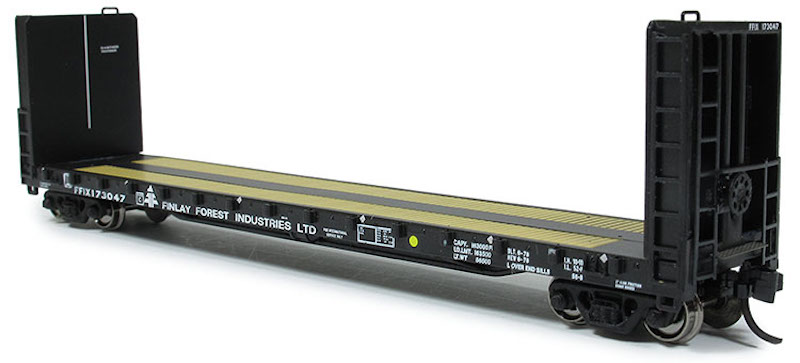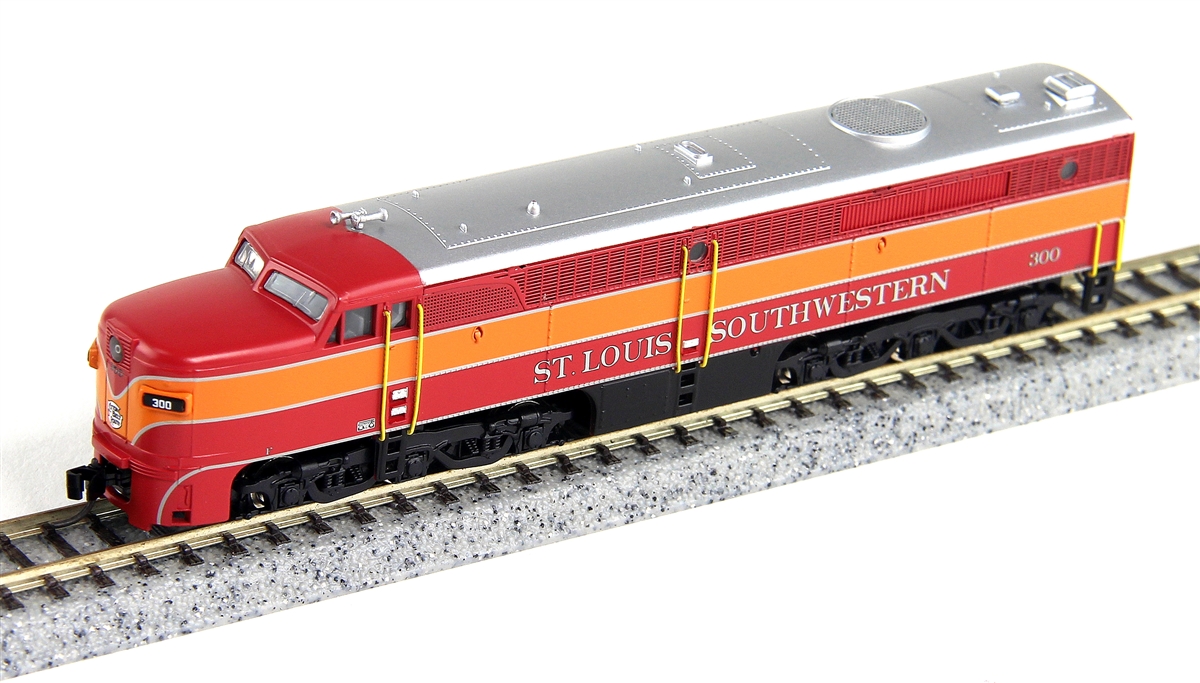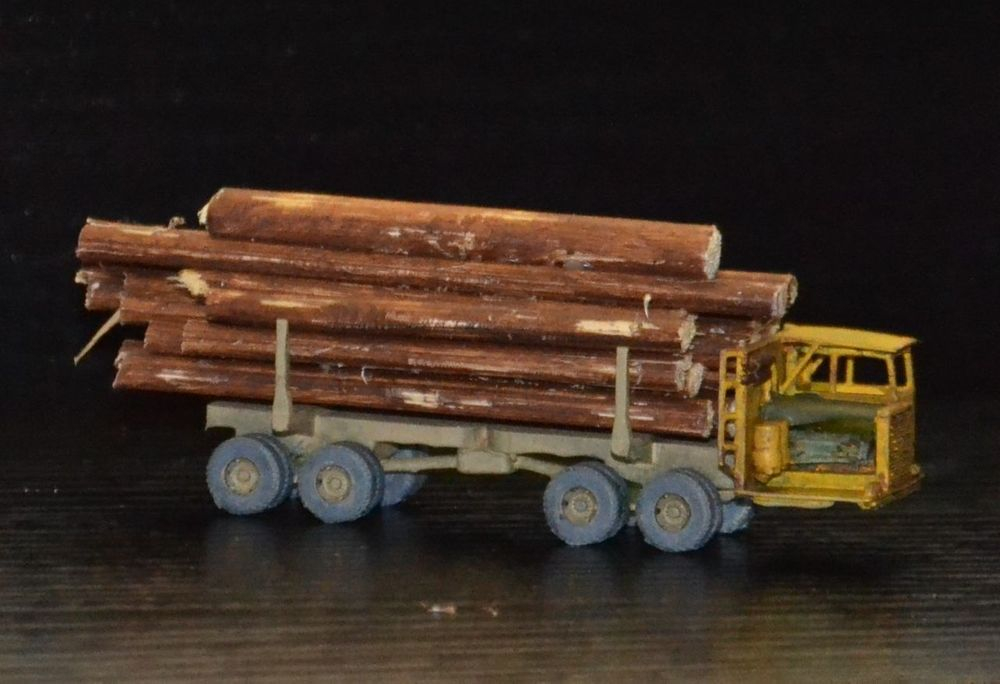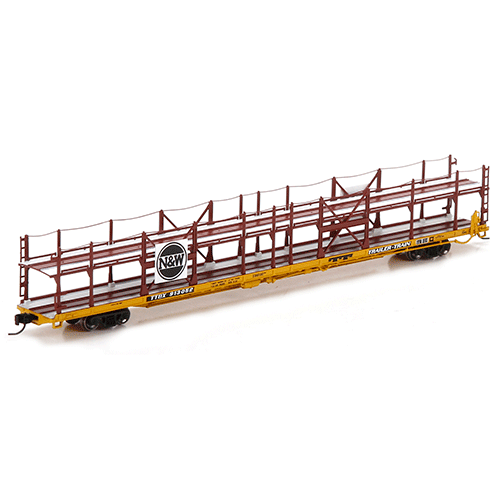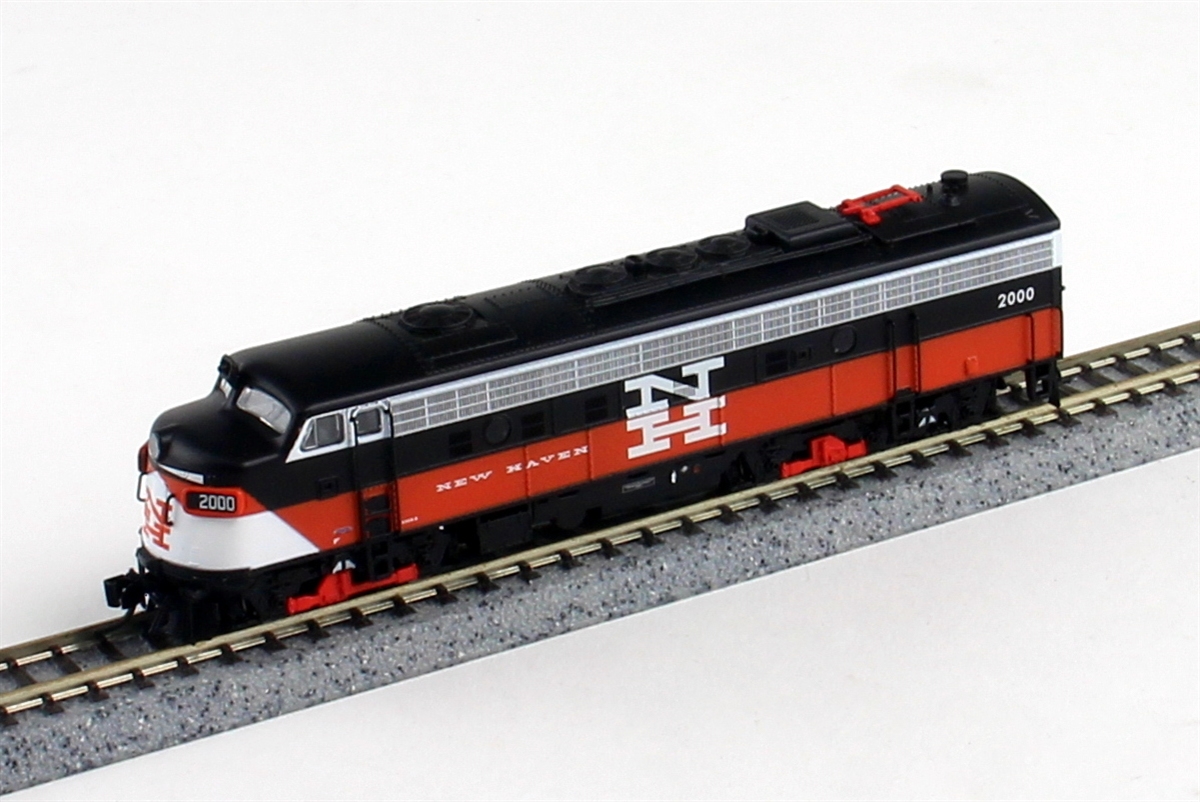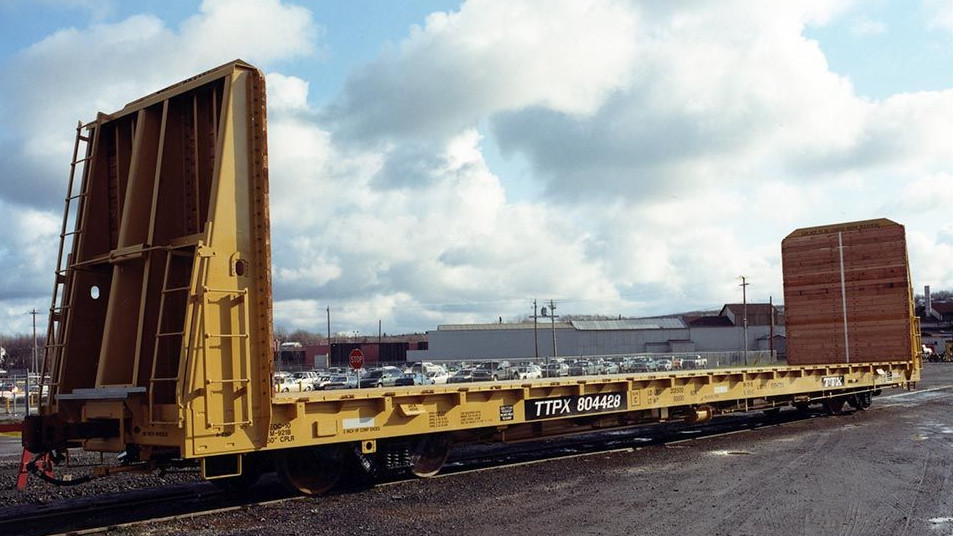Model Information: The bulkhead flatcar was built by Hawker-Siddeley's Trenton Works in 1974 for CN as well as DW&P and BC Rail.
This prototypically accurate model includes:
This prototypically accurate model includes:
- Etched ladders applied at the factory
- Full underbody detail
- Die-cast frame for optimum weight
- Body mounted Micro-Trains couplers
- Blackened metal wheelsets
- Correct ride height
- Accurate paint and lettering
Prototype History: Among the earliest types of freight cars, flatcars continue to serve as a valuable part of railroading. Flatcars are used to move a wide variety of loads which do not require protection from weather. These cars, are constructed with steel underframes, wood floors and stake pockets on the sides and ends for fastening tie-downs that keep loads from shifting.
Bulkhead flat cars are a specialized type of flatcar designed which includes reinforced end-walls (bulkheads) to prevent loads from shifting past the ends of the car.
Bulkhead flat cars are a specialized type of flatcar designed which includes reinforced end-walls (bulkheads) to prevent loads from shifting past the ends of the car.
Road Name History: 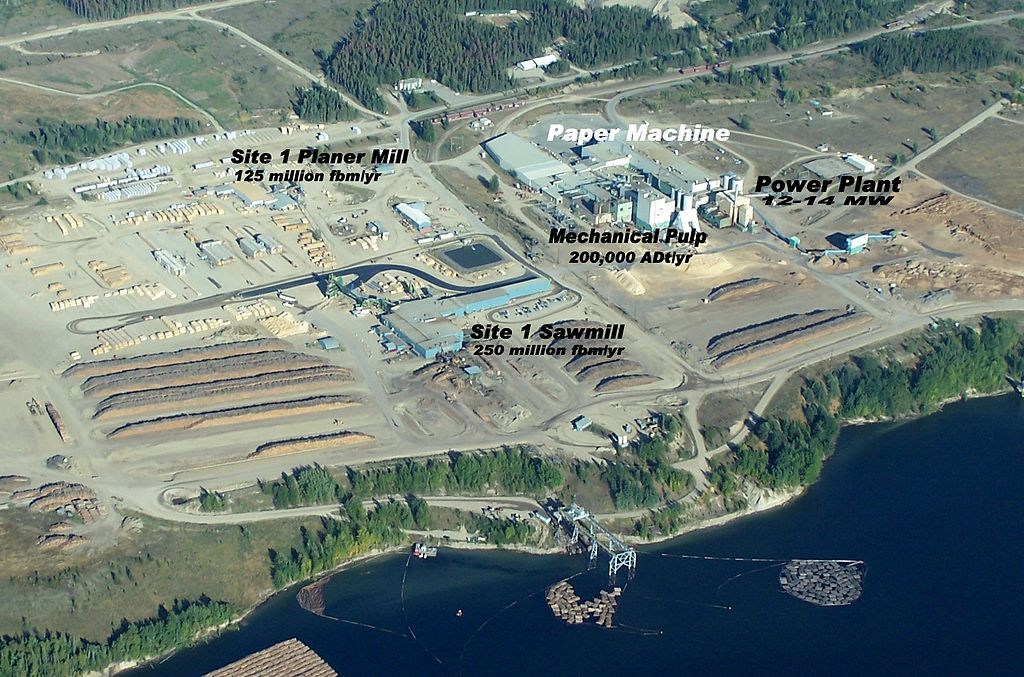 Finlay Forest Industries (FFI) was established in 1970 as a joint venture between Cattermole Timber and two Japanese firms, Jujo Paper and Sumitomo Forestry. In 1980, operations were purchased by British Columbia Forest Products (BCFP). Slocan Forest Products Ltd. and Donohue Inc. acquired FFI in 1994 as equal co-owners. In 1999, Donohue Inc. completed an $80 million takeover of Finlay Forest Industries This was followed in 2000, by a $7.1 billion takeover of all Donohue's operations, including their Mackenzie holdings, by Abitibi-Consolidated. As part of this acquisition, FFI was dissolved as a company with operations now under the Abitibi-Consolidated brand.
Finlay Forest Industries (FFI) was established in 1970 as a joint venture between Cattermole Timber and two Japanese firms, Jujo Paper and Sumitomo Forestry. In 1980, operations were purchased by British Columbia Forest Products (BCFP). Slocan Forest Products Ltd. and Donohue Inc. acquired FFI in 1994 as equal co-owners. In 1999, Donohue Inc. completed an $80 million takeover of Finlay Forest Industries This was followed in 2000, by a $7.1 billion takeover of all Donohue's operations, including their Mackenzie holdings, by Abitibi-Consolidated. As part of this acquisition, FFI was dissolved as a company with operations now under the Abitibi-Consolidated brand.
Abitibi-Consolidated operated the two sawmills, including their associated planer mills, the paper mill, and a steam/power plant until 2008 when the 2008 Recession shutdown all manufacturing operations.
Conifex Timber purchased all assets in 2010 and presently operates one sawmill.
From Wikipedia

Abitibi-Consolidated operated the two sawmills, including their associated planer mills, the paper mill, and a steam/power plant until 2008 when the 2008 Recession shutdown all manufacturing operations.
Conifex Timber purchased all assets in 2010 and presently operates one sawmill.
From Wikipedia
Item created by: gdm on 2016-04-16 17:45:53. Last edited by gdm on 2020-05-26 15:48:43
If you see errors or missing data in this entry, please feel free to log in and edit it. Anyone with a Gmail account can log in instantly.
If you see errors or missing data in this entry, please feel free to log in and edit it. Anyone with a Gmail account can log in instantly.


